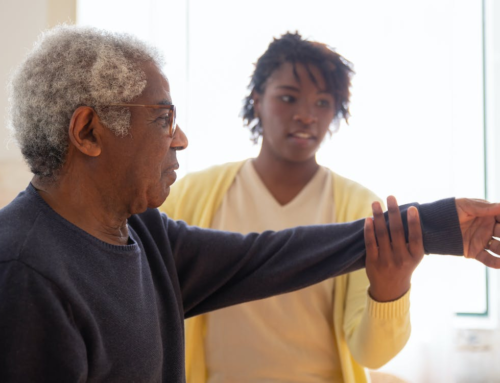The rate of hand injuries has substantially increased over the years. In the US alone, more than 100,000 workers report hand injuries annually. However, many of these injuries are preventable, and numerous others are treatable through non-operative therapies. That’s where a certified hand therapist comes into action.
Keep reading to find out who a certified hand therapist is and how widespread their role is in today’s medical field.
Who is a Certified Hand Therapist?
A certified hand therapist (CHT) is either a physical therapist or an occupational therapist who trains in treating upper extremity injuries. While on the surface, all these therapists’ roles look the same, the difference lies in the types of intervention they mainly employ.
More closely related to CHT, an occupational therapist primarily treats hand conditions using modalities and splints. In contrast, CHT approaches every condition holistically and devises a treatment plan for the physical and emotional well-being of the patient.
Hand Injuries Treated by CHT
Since CHTs specialize in treating upper extremity issues, there are various conditions for which CHTs can be consulted. Some of them are listed below:
- Arthritis (Rheumatoid and osteo)
- Fractures
- Tendon lacerations
- CNS conditions such as Parkinson’s disease
- Sprains and strains
- Trauma-related injuries
- Burns and wounds
- Infections
- Amputations
- Birth deformities
As the list shows, CHTs can treat various hand injuries related to nervous system dysfunction or musculoskeletal condition.
Treatment Interventions Used by CHT
CHTs stand out in the crowd of therapists due to their expertise in treating their patients’ physical and emotional pain-related traumas. Therefore, there are various interventions that CHTs employ in their treatment. Some are listed below:
- Swelling management
- Wound and scar management
- Therapeutic exercises such as stretching
- Splints or braces
- Prostheses and orthoses
- Various modalities
- Ergonomics therapy
- Biofeedback therapy
- Back-to-work training
- Desensitization
Why See a CHT?
Since CHTs have a more specialized skill set, it’s better to consult one if you have a complex hand injury. The professionals will try their best to treat the conditions with non-operative measures. Even if surgery is needed, most surgeons are present within the same facility, allowing CHTs to stay in touch with the surgeon.
Moreover, CHTs are also trained to look after patients’ emotional well-being. Therefore, they use various psychological interventions to reduce pain and trauma-related mental stress. They also educate individuals regarding preventive care for hand conditions.
Find Experienced CHTs in NJ
If you’re looking for expert CHTs in NJ, Able Hands Rehabilitation is the ideal choice. The professionals use various interventions and state-of-the-art devices to treat upper extremity conditions.
To book an appointment, contact them via call or email or visit their website today.









Leave A Comment
You must be logged in to post a comment.